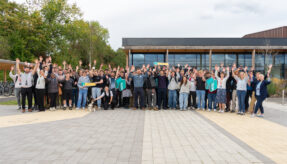
The US Air Force Space Command is looking to protect assets against space adversaries to secure communications and location services.
The US Air Force is looking at methods of protecting assets from space adversaries through working with allies. The space command is looking into how assets can be protected from exploitation and remain accessible to the US.
The Air Force is partnering with allies in the space sector for the first time in decades. They are also partnering with civil services like NASA and the commercial sector.
Air Force Lieutenant General David D. Thompson said: “We are building in capabilities to protect and defend the space systems that we have today on orbit and we expect to have on orbit in the near future. A large majority of them have not been designed to operate in conflict, to operate under threat. But we are very quickly adapting them to be able to be defended, to provide capabilities to defend them and to develop tactics, techniques and procedures under which to defend them.”
“We are rapidly moving to a new approach … a coalition of the willing, a coalition for the like-minded, a coalition that brings the capabilities that they need and we need to various scenarios and presents complicated situations to any potential adversary.”
“It is, in fact, a whole host of technologies and ideas, but first and foremost, it’s a matter of understanding what’s happening in the commercial sector today. It’s understanding the investments that are made, understanding the capabilities they intend to provide and determining how we can adapt and apply and partner with parts of the commercial sector for the support of civil society, public safety, the commercial sector, but in our case especially, national security.”
The Air Force is also changing how it approaches training, operational planning, and exercises. It is hoped the changes will adapt these processes to space and prepare personnel to protect US and allied assets in space.
If you would like to join our community and read more articles like this then please click here.
allies conflict satellites Space technology United States Space Command US Air Force








